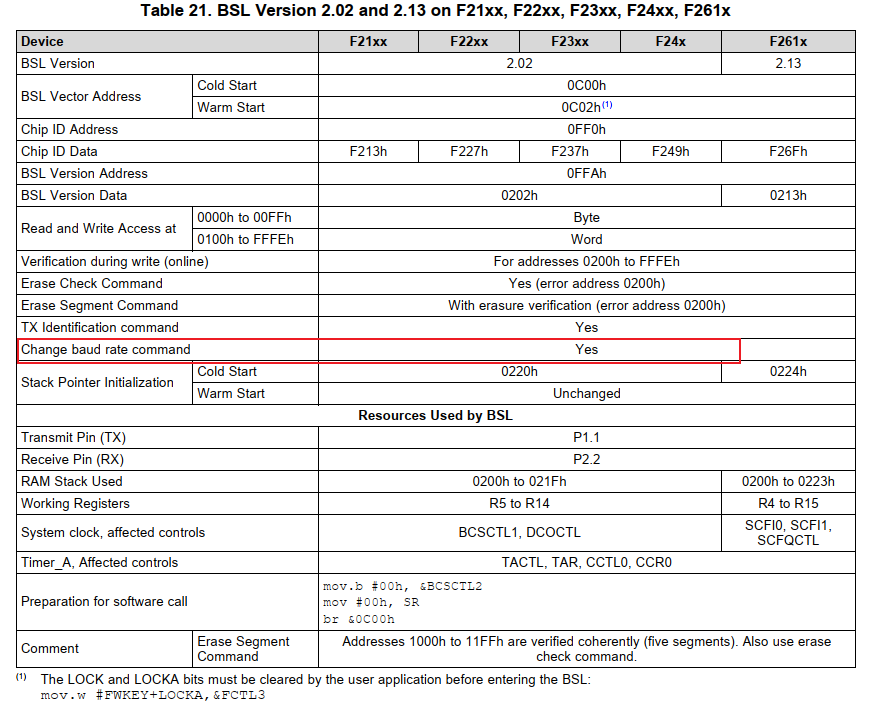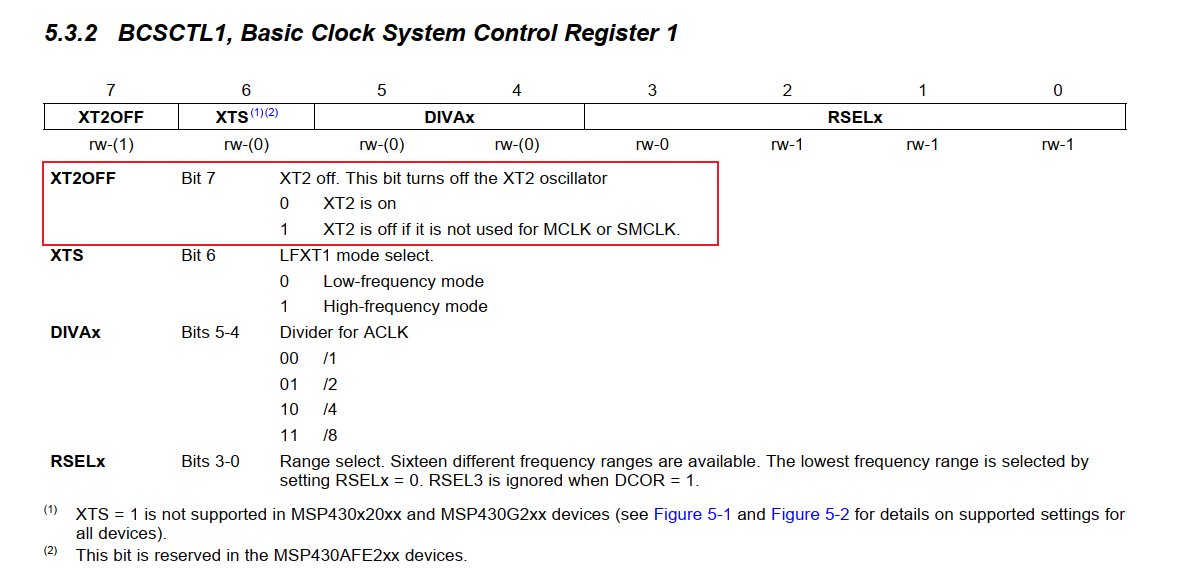Other Parts Discussed in Thread: MSP430F149, AM5746
I would like to know if a baud rate other then the 9600 baud may be used in BSL protocol.
Looking at the SLAU319AD – JULY 2010 – REVISED JUNE 2020 version of the document, I observe an apparent contradiction as follows:
- On page 7 of the document, section 1.4 UART Protocol is says:
- Baud rate is fixed to 9600 baud in half-duplex mode (one sender at a time).
- Also, in the note on the same page is says:
Applying baud rates other than 9600 baud at initialization results in communication problems or
violates the flash memory write timing specification. The flash memory can be extensively stressed or
can react with unreliable program or erase operations. - From this, one can conclude that only the 9600 baud UART date rate is allowed to be used.
- However, on page 9 of the document, the Data-Stream Structure table lists the Change Baud Rate BSL command, which allows the UART baud rate to be changed to 19200 or 38400 baud in addition to the default of 9600 baud.
I assume that both statement are applicable to different types/versions of msp430 device.
In my case, I use the msp430f2274 device.
So, can I apply the 38400 baud rate on the device I use?
Bud










